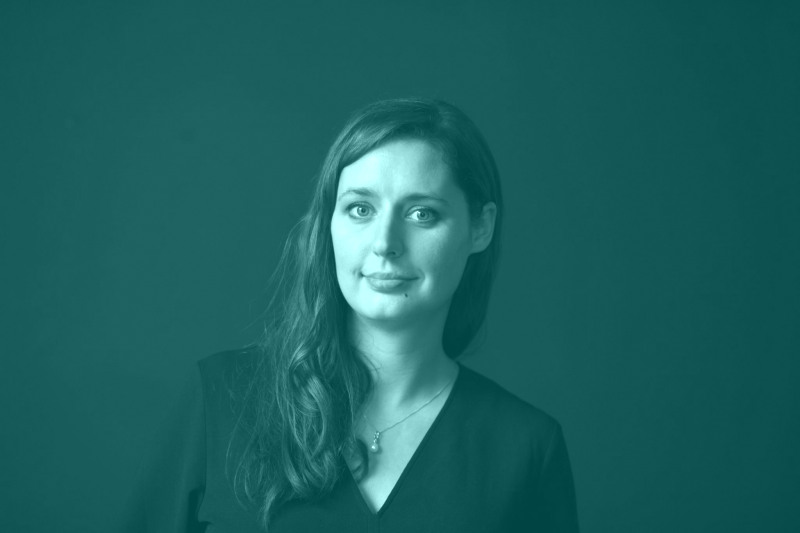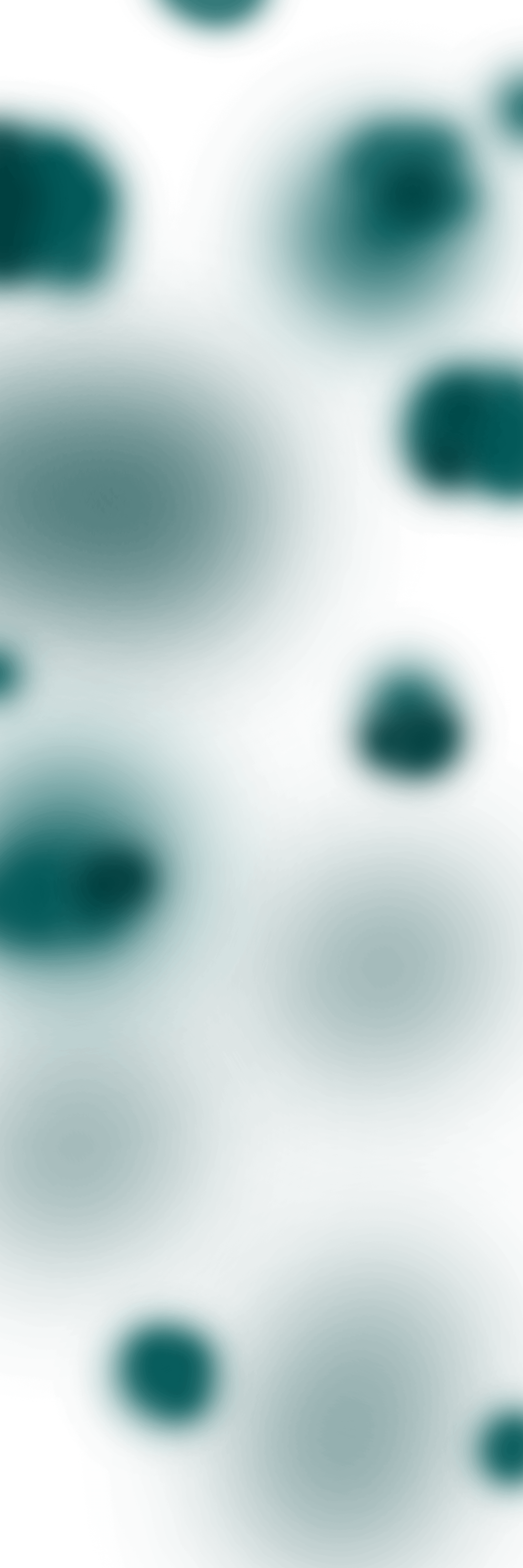Katharina Nocun ist Publizistin sowie Wirtschafts- und Politikwissenschaftlerin. In ihrer Arbeit setzt sie sich vor allem mit dem Spannungsfeld Digitalisierung und Demokratie auseinander. Sie ist regelmäßig Gast in zahlreichen TV- und Talkshow-Formaten. Ihr Podcast Denkangebot war 2020 für den renommierten Grimme Online Award nominiert. Ihr erstes Buch Die Daten, die ich rief (2018) behandelt das Thema Datensammlungen von Staat und Konzernen. Das zweite Buch Fake Facts. Wie Verschwörungstheorien unser Denken bestimmen (gemeinsam mit Pia Lamberty) erschien 2020 bei Quadriga und wurde ein Bestseller. Im Mai 2021 erschien das zweite gemeinsame Buch True Facts. Was gegen Verschwörungserzählungen wirklich hilft.
New „Brothers in Arms“
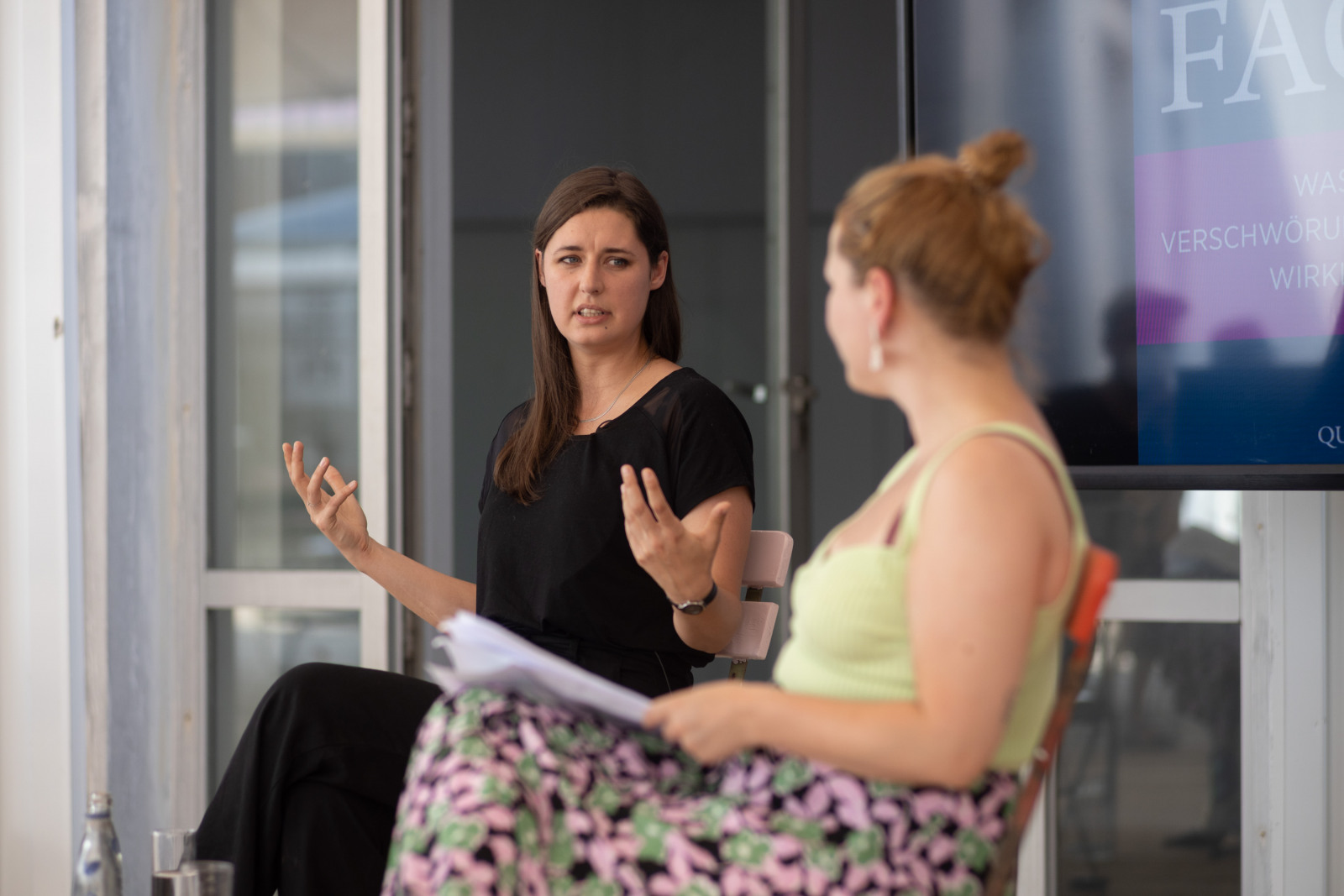
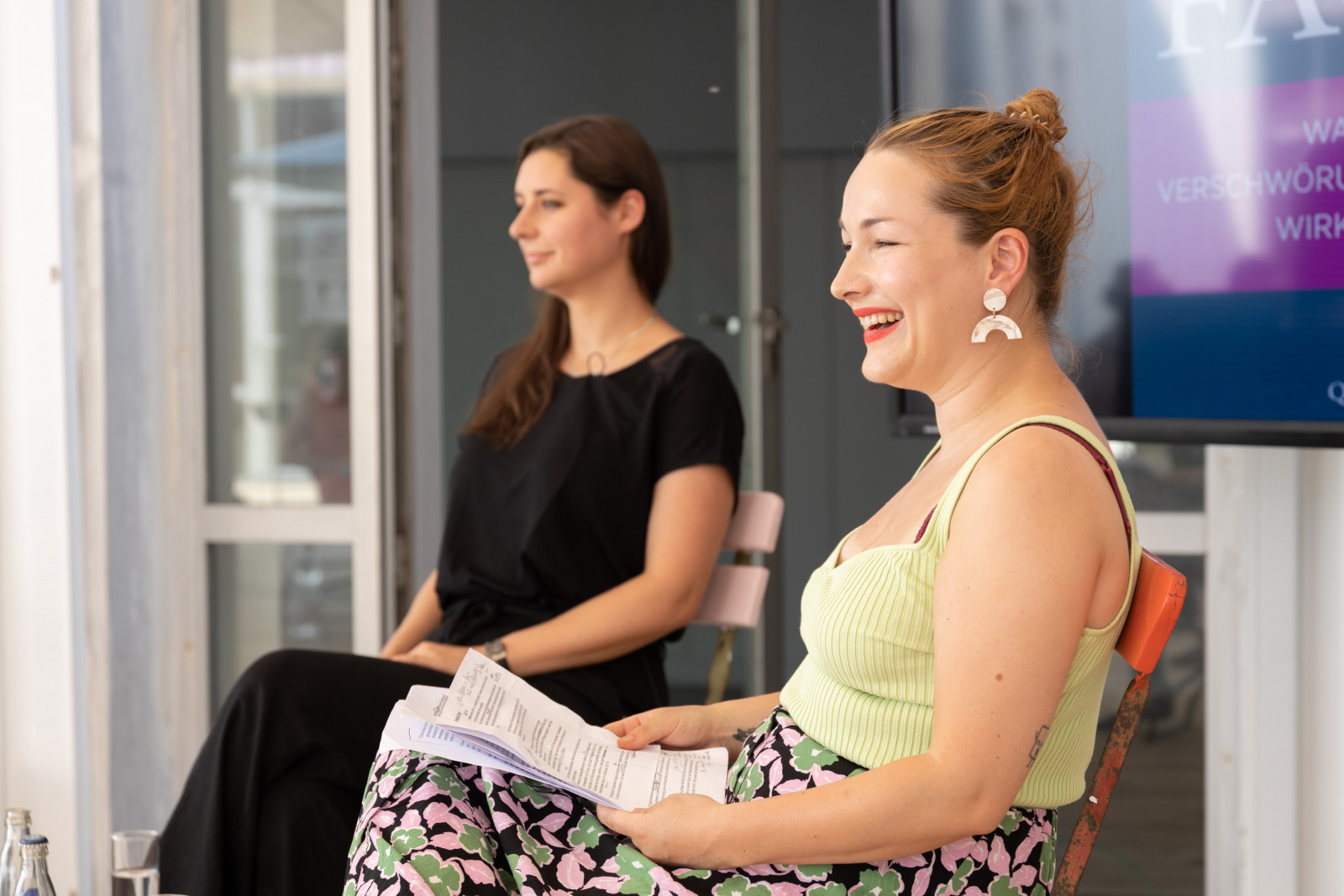
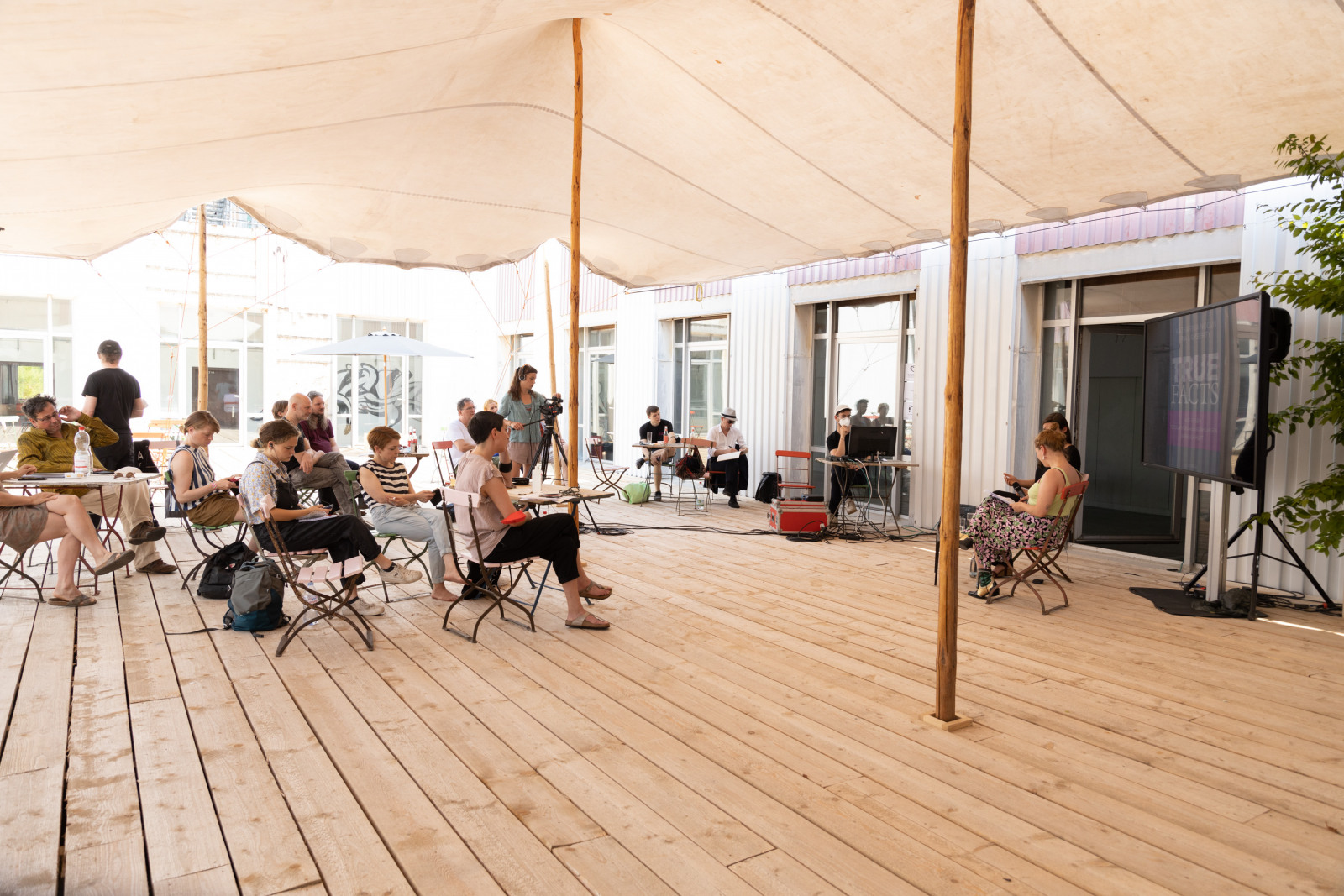
Conversation with Katharina Nocun (DE) and Katharina Meyer (DE)
For years a new cultural and information war has been raging online. With the rise of fake news and disinformation campaigns, alternative news universes have been created that help advance specific political goals and lend credence to conspiracy narratives. Just how quickly “alternative facts” spread is demonstrated by the remarkable speed with which in the first days of the Corona pandemic outlandish accounts of the virus’ origins and potential treatments were able to make the rounds. The boundaries between the German “Querdenker” movement, conspiracy theories and antidemocratic ideologies are becoming ever more blurred. The Utopian vision of an enlightened, democratic internet that promotes freedom and contributes to global understanding and equality seems to have degenerated into the very opposite. To what extent do social media serve as catalysts for verbal radicalisation and to legitimise violence? Which forms of protest and counter movements can offer an effective resistance to such trends? Is the digital world more suitable as a weapon for reactionaries or as an educational and informational tool?
This session brings together Katharina Nocun – civil rights activist, journalist and co-author of Fake Facts. Wie Verschwörungstheorien unser Denken bestimmen – and Carolin Wiedemann – journalist and sociologist with a special focus on gender relations, politics of migration and digital capitalism – to talk about the new battlegrounds on which the conflicts between information and knowledge transfer, spin, manipulation and freedom of speech are being waged. The conversation will be moderated by Katharina Meyer, a science and technology historian from Berlin.
Carolin Wiedemann could not participate in the conversation as planned.
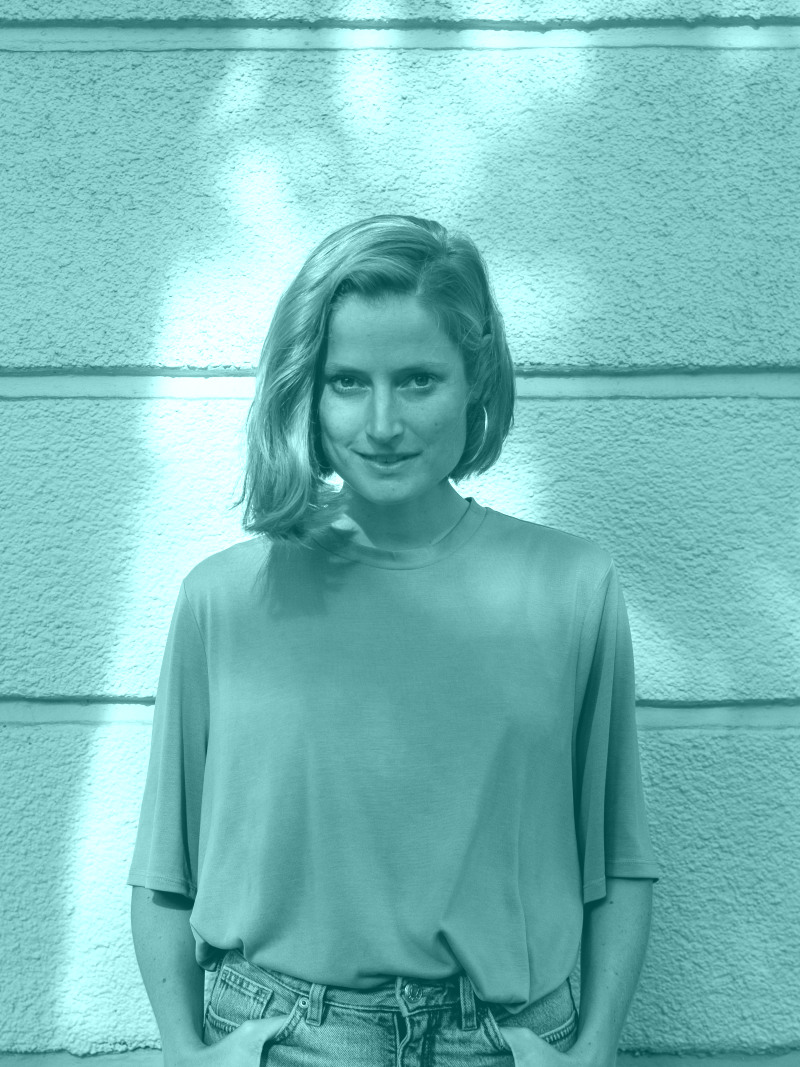
Carolin Wiedemann ist Journalistin und Soziologin. Sie schreibt u. a. für die Frankfurter Allgemeine Zeitung, Der Spiegel und Analyse & Kritik über Geschlechterverhältnisse, Migrationspolitik und digitalen Kapitalismus. Zurzeit forscht sie an der Humboldt-Universität zu Berlin zur Frage, wie sich Rassismus durch das Internet verändert. Sie ist Teil der Redaktion von Spheres. Journal for Digital Cultures und Autorin der Studie Kritische Kollektivität im Netz (transcript). Ihr neues Buch Zart und frei. Vom Sturz des Patriarchats erschien im Januar 2021 bei Matthes & Seitz.
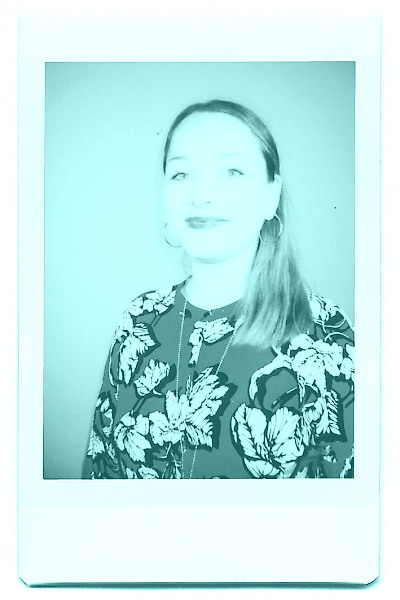
Katharina Meyer ist Wissenschafts- und Technikhistorikerin sowie Kuratorin aus Berlin, untersucht u. a. künstlerische Praktiken und Wissensproduktion an der Schnittstelle von Gesellschaft und Technologien und implizite Werte in Communitys von User Innovators. Sie kooperiert regelmäßig in der Ideenentwicklung mit Medien- und Konzeptkünstlern zu Themen wie Infrastruktur und Life Sciences. Hauptberuflich fördert sie gemeinwohlorientierte Software im Auftrag des BMBF – und interessiert sich besonders für Ontologien technischer Systeme sowie Innovationsökologien, Einschluss- und Ausschlusskriterien. Sie war Research Fellow am Centre for Digital Cultures, Leuphana Universität Lüneburg, viele Jahre Programmmacherin bei der Gesellschaftskonferenz re:publica, ist Mitbegründerin von Polynocular Tech Lab und erhielt mit diesem Projekt ein Fellowship des Center for Advanced Internet Studies, Ruhr-Universität Bochum. Außerdem ist sie Alumni der Summer School Hackademia – Empirical Studies in Computing Cultures.

